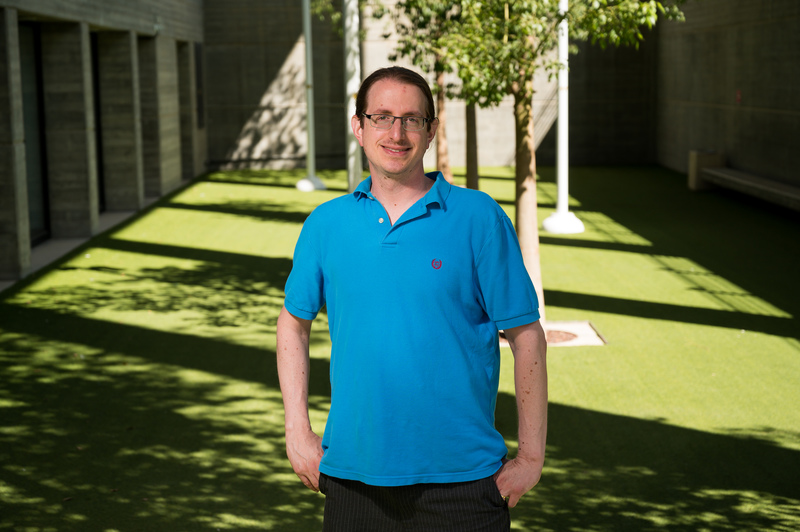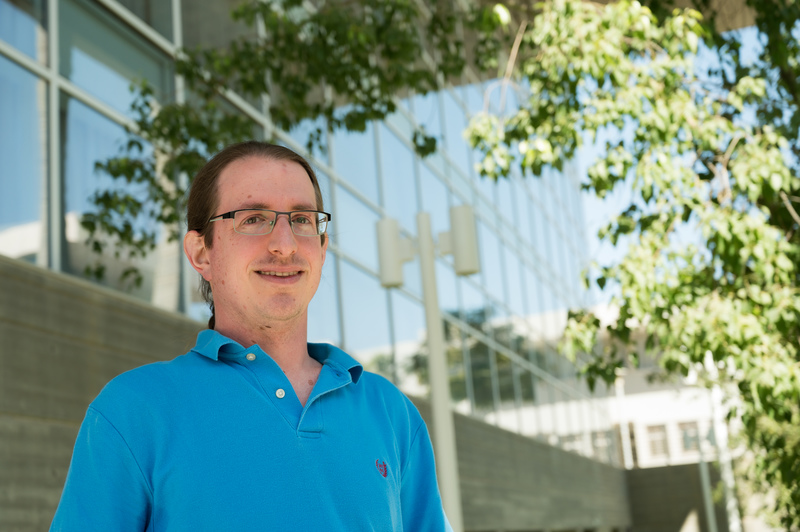Department of Psychology
Faculty of Humanities and Social Sciences

My life before BGU:
I was born and raised in Haifa. I studied for all of my degrees at the Hebrew University in Jerusalem. I did my bachelor's degree in cognitive science, and in media and journalism, during which I discovered the world of research psychology when I joined (then Dr. and today Prof.) Anat Maril and helped her to establish her lab. During my master's degree in cognitive science, I explored metacognition phenomena – how we know that we know something. I discovered that the feeling that we know something is based on different mechanisms as a function of types of memory, and found that it's possible to change the strength of that feeling.
During my doctoral studies, I researched the influence of prior knowledge on learning new knowledge, and I demonstrated how the brain allows us to easily grasp information that is compatible with what we know (for example, a yellow banana as opposed to a purple banana). The doctorate, together with my activities in the non-profit sector, led me naturally to a postdoc in social neuroscience at Harvard's psychology department, with Prof. Jason Mitchell. During this time, I dealt a lot with stereotypes, in their subjective value and in the perceptions of different social groups, which constitute a basis for my current research.
"I found that people experience a feeling of reward when they see someone that fits their stereotypes.
Even more than that, people are prepared to pay money in order to see those who fit the stereotype
and compatibility with a stereotype activates the same cerebral areas which are activated
in a response to positive stimuli like food or money"
|
My research:
I research how our expectations influence how we behave and how we perceive other people. I try to characterize the cognitive, social and cerebral mechanisms involved in these processes in order to understand why it is so difficult to change the perception of others and which tools could be effective in changing attitudes and stereotypes. For example, I found that people experience a feeling of reward when they see someone that fits their stereotypes. Even more than that, people are prepared to pay money in order to see those who fit the stereotype and compatibility with a stereotype activates the same cerebral areas which are activated in a response to positive stimuli like food or money.
Why BGU?
I am excited to join BGU's psychology department, which is known for its great combination of being at the research forefront and its amazing atmosphere.
An insight from my research:
The ability to predict how people around us will respond and behave can constitute a very significant source of power and motivation in our behavior.

Something that doesn't appear on my resume:
I love reading fantasy and science fiction. It provides a fascinating look at human psychology. I also have a number of virtual hobbies that I have been involved with for 10-15 years.
A source of inspiration:
My late grandfather. Loved by people, full of wisdom and sensitivity.
When I grow up: At a certain point in my youth, I thought I would enjoy being a lawyer. Today I am happy where I am!
If I was not a researcher, I would:
be working in hi-tech? It's hard to know.
In Brief:
» Facebook or Twitter? Every medium has its uses. We don't have to make a binary choice.
» Game of Thrones or the Simpsons? The first few seasons of both
» Yoga or CrossFit? Yoga, it's better suited to my personality.
» Hapo'el or Maccabi? Maccabi. Maccabi Haifa.
» Steak or tofu? Steak, but I'm waiting for the day when meat substitutes will be good enough. It will happen over the next few years.
» Trekking or the spa? For me, the spa after a trek sounds like the perfect day.
» Morning or night? Night. I love the night. Two daughters who didn't sleep at night when they were small didn't change this. Nothing will change this.
» Cat or dog? Cat. An animal with character and personality is preferable.
Meet other researchers who joined us this year »